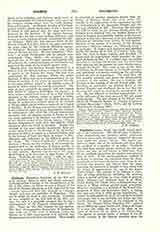

Zolkiewski, STANISLAUS, Chancellor of Poland, b. in Turynka (Red Russia), 1547; d. at Cecora, October 6, 1620. He studied at Lemberg with great distinction, and is said that he knew all Horace by heart. With his friend Zamoyski he fought under King Stephen Bi thori in the wars against Tsar Ivan the Terrible. Both distinguished themselves greatly, and rose into high favor. Zolkiewski became castellan of Lemberg in 1593. Unfortunately Sigismund III was unfriendly to him from the outset; he mistrusted him and would have none of his advice. When the Cos-sacks began to revolt, Zolkiewski was for treating them gently, but he received orders to put down Nalewajek and Toba, the rebel leaders. His loyalty shone brightly when Zebrzydowski’s rising took place. Although Zolkiewski knew that the nobles had many just grievances against King Sigismund, by whom he himself was disliked, yet he came to his aid, and defeated the rebels at Guzow. Again he advised his master against war with Muscovy, at the time of the “False Demetrius“, as both unjust and impolitic; but, as he says in his famous memoirs, “His Majesty’s ears were closed to the hetman’s arguments”. Ordered to lead the army he obeyed, only to find the influence of his enemies and rivals everywhere predominant, interfering with the campaign, making him beseige Smolensk against his better judgment, and at last sending him to Moscow with only 6000 men. At Kluszyn he met and cut to pieces the army of Szujsko, 50,000 strong, entered the city, and, after much parleying with the people and the clergy, made terms by which Wladislaw, King Sigismund‘s son, was to become Tsar of Muscovy. But even this did not please Sigismund; he reproached Zolkiewski, refused to ratify the arrangement, and it became clear that he himself wished to become Tsar of Muscovy. This was an impossibility, and by this refusal all the victories and diplomatic triumphs of Zolkiewski were rendered null, as he pointed out to the Diet at War-saw, when he returned with the Tsar Demetrius and two of the greatest Russian princes, his captives. In 1613 he at last received the grand hetman’s staff (withheld from him until then), and went to fight the Turks. In Busza, forced by the superior strength of the enemy, he made a convention with them, for which he was put on his defense in the Diet, an or-deal from which he came forth victorious once more. He died in battle on the disastrous field of Cecora, borne down by Turkish hordes, abandoned by his own troops, but fighting like a hero to the very last. He was a great patriot, a faithful servant of the nation and of a weak king who hated him, an ardent Catholic, and one who did much to promote the union of the Ruthenian Church. The memoirs of his expedition to Moscow, written by himself, are extant, a masterpiece of modesty and sincerity, as invaluable for the history of those times as Caesar’s “Commentaries” are for his own. In them we find the sadness of a man whose life has been one long disappointment, striving unsuccessfully and almost alone to hold back the nation that he loves, and that is still mighty, from its impending fall and destruction.
S. TARNOWSKI

